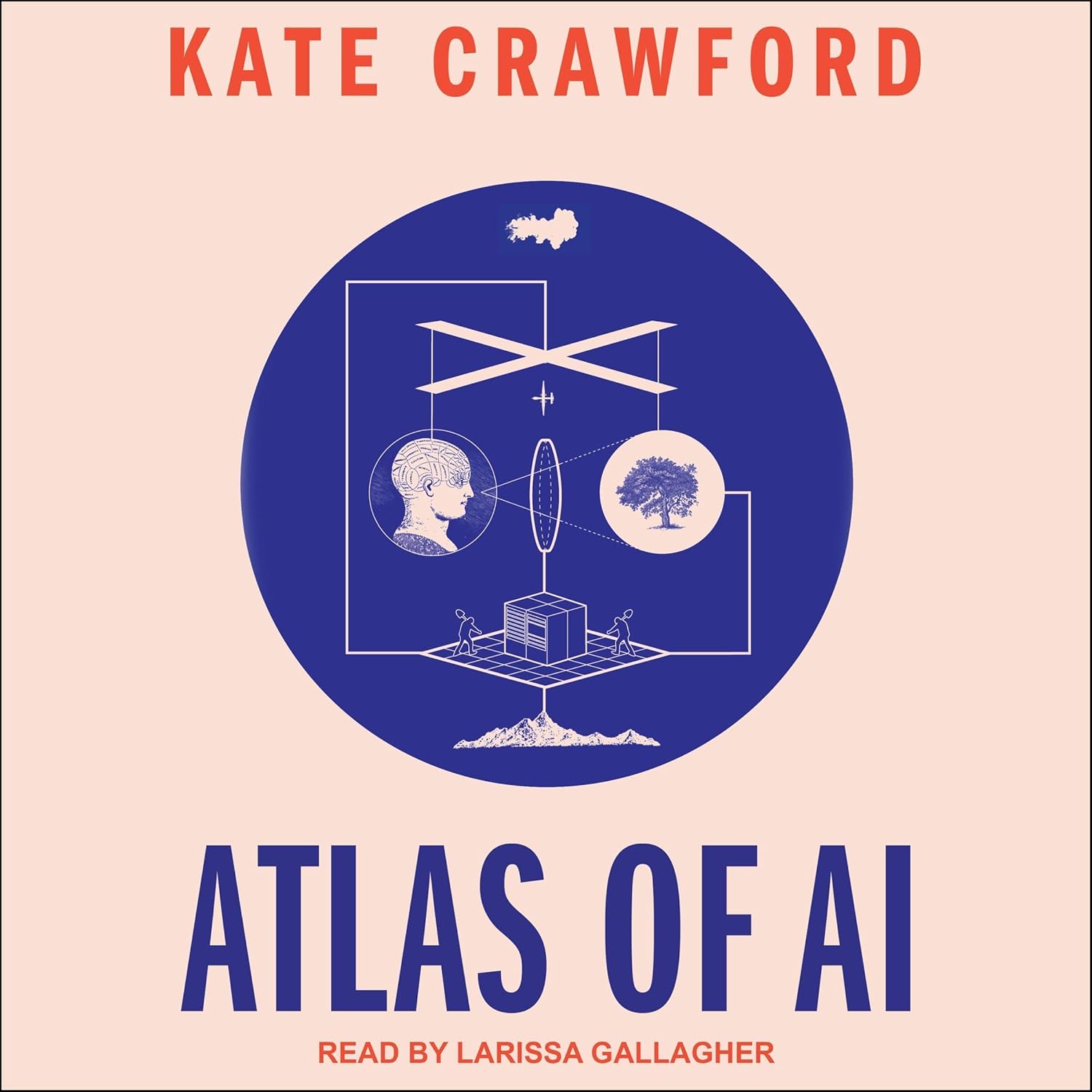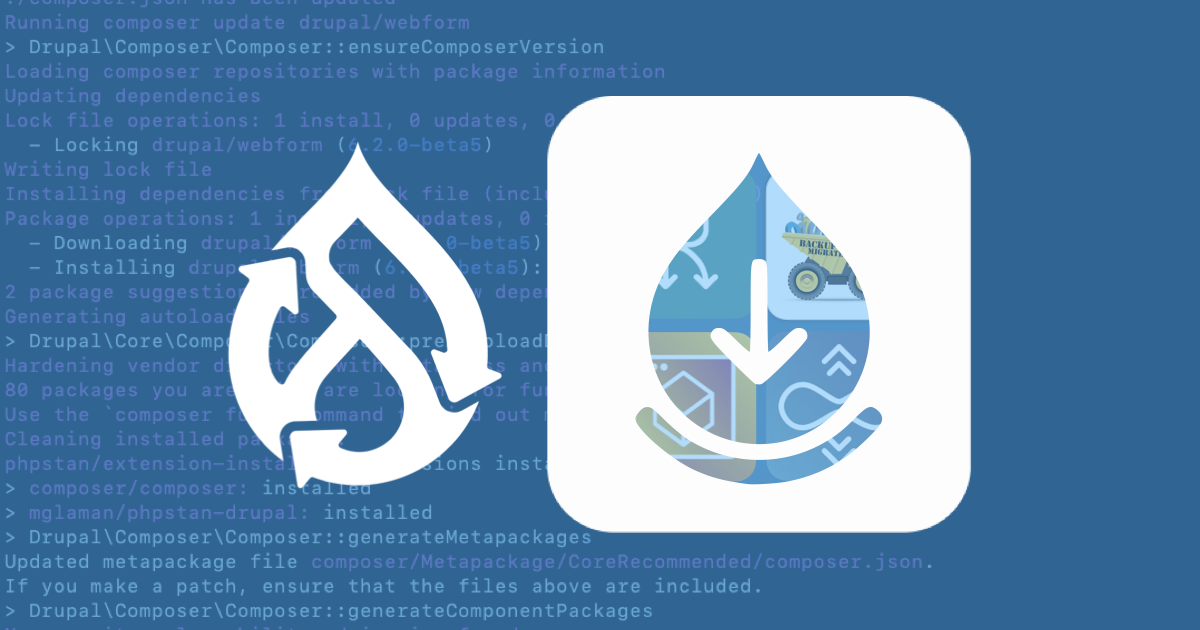Author:
Source
Sponsored:
Atlas of AI: Power, Politics, and the Planetary Costs of Artificial Intelligence - Audiobook

Uncover the true cost of artificial intelligence.
Listen now, and see the system behind the screens before the future listens to you. = > Atlas of AI $0.00 with trial. Read by Larissa Gallagher
An effective Request for Proposals (RFP) or Call for Proposals (CFP) not only outlines the goals and expectations of your project but also defines the framework within which potential vendors must operate. It goes beyond simply finding the right vendor to build your website or deliver a content management system (CMS) tailored to your needs—it’s an opportunity to establish a partnership, support open source software, and contribute to a vibrant community ecosystem.
For many organizations, choosing open source software isn’t just a preference—it’s a strategic imperative. The advantages of free and open source software (FOSS) include cost savings, solutions tailored precisely to your organization’s needs, and robust security, strengthened by a vigilant community.
In this blog post, we’ll guide you through crafting an RFP that prioritizes open source solutions while tapping into the expertise of Drupal Certified Partners. We also offer a free, downloadable RFP template to help streamline the process, ensuring your project specifications attract top-tier vendors dedicated to innovation and contributing to the Drupal community.
The advantages of open source software
- Cost savings: Open source eliminates hefty licensing fees, allowing organizations to allocate resources more efficiently. While there may be costs associated with customization and maintenance, the overall financial burden is often significantly lower.
- Flexibility and extensibility: Open source platforms can be tailored to meet specific organizational needs. With access to the source code, developers can modify and extend functionalities without waiting for vendor updates or feature requests.
- Enhanced security: Open source communities actively monitor and address security vulnerabilities. The collaborative nature ensures that security patches and updates are promptly developed and deployed.
- Alignment with organizational values: Open source promotes transparency, collaboration, and community-driven development. Organizations that prioritize these values find open source solutions to be a natural fit.
- Case study: Swiss Government’s open source mandate
A notable example of strategic open source adoption is the Swiss government’s recent decision to prioritize open source solutions in public sector projects. This mandate not only underscores the benefits of open source but also sets a precedent for other governmental bodies. By embracing open source, the Swiss government aims to enhance transparency, reduce costs, and foster innovation within its digital infrastructure.
Finding the ideal service provider
Finding the right service provider that aligns with your vision is crucial to the success of your project. The right partner not only brings the necessary technical expertise but also understands your long-term goals, ensures smooth collaboration, and shares your commitment to quality and innovation. A well-aligned service provider becomes a trusted partner, invested in both your immediate needs and your future growth.
Here’s why partnering with Drupal Certified Partners makes a significant difference:
- Rigorous certification process: The Drupal Association evaluates potential partners based on their contributions to Drupal core, contributed modules, and themes. This ensures that only the most dedicated and skilled agencies receive certification.
- Proven track record: Certified Partners have a history of successful Drupal implementations, showcasing their ability to handle complex projects with efficiency and expertise.
- Commitment to the community: These partners actively contribute to the Drupal project through code contributions, module development, and participation and sponsorship in Drupal events and initiatives.
- Verifiable capabilities: The Drupal Association provides verified letters of recommendation for Certified Partners to include in RFP responses, giving procurement teams trusted verification of their skills and commitment to the Drupal ecosystem.
Certified partners are contributing experts
When drafting your Request for Proposals (RFP) or tender, specifying a preference for officially certified implementation partners — such as Drupal Certified Partners — can dramatically elevate the quality of vendor responses. Drupal Certified Partners are distinguished not only by their expertise in deploying Drupal solutions but also by their active contributions to the Drupal project itself. This dual commitment ensures that these partners are intimately familiar with the latest developments in Drupal, enabling them to deliver solutions that are both innovative and sustainable. Moreover, by requiring a Drupal Certified Partner, organizations directly support vendor involvement with the open source community, fostering a collaborative ecosystem that drives continuous improvement and long-term success.
The flywheel effect: How partner contributions benefit everyone
Choosing a Drupal Certified Partner also supports the broader Drupal project by empowering top contributors to maintain and enhance the platform that underpins your organization’s digital presence. These partners often invest more resources into contributing to Drupal core, contributed modules, and themes than they do into traditional marketing efforts. This investment creates a “flywheel” effect: as partners develop new features or improvements to meet your specific needs, these enhancements are reintegrated into the Drupal community, benefiting all users and ensuring the platform remains cutting-edge and secure. You benefit as well, though, as the community jumps on board to test, extend, maintain, and update the code that you (through your partner) contributed. This makes your code better in the long run at no additional cost to you.
About the Drupal Certified Partner program
The Drupal Association, a nonprofit organization dedicated to promoting and sustaining the Drupal project, plays a crucial role in identifying and certifying these top-tier partners. Through evaluation of their contributions to Drupal core, contributed modules, and themes, the Drupal Association designates certain agencies as Drupal Certified Partners. This certification not only recognizes their technical prowess and commitment to the Drupal ecosystem but also provides procurers with verified attestations of their capabilities, simplifying the vendor selection process.
Testimonials and success stories
Organizations that have partnered with Drupal Certified Partners consistently report higher satisfaction levels, smoother project executions, and more robust and scalable solutions. These partners bring not only technical expertise but also a collaborative spirit that aligns with the open source philosophy, ensuring that projects are both innovative and sustainable.
Crafting your RFP for success
An effective RFP not only clearly defines your requirements and expectations, it also sets the boundaries within which potential vendors must operate. For example, specifying the need for mobile-responsive design ensures all proposals meet modern accessibility standards, while outlining strict data security requirements guarantees vendors prioritize protecting sensitive information. Additionally, specifying a preference for open source software like Drupal can impact your project’s flexibility, cost, and alignment with organizational values.
Here’s how to structure your RFP to prioritize open source solutions and Drupal Certified Partners:
-
Define project goals and objectives
-
Clearly outline what you aim to achieve with your website redesign or CMS selection.
-
Include specific functionalities, design preferences, and performance metrics.
-
-
Specify open source requirements
-
Highlight the importance of using open source software.
-
Explain how open source aligns with your organization’s values and strategy.
-
-
Mandate Drupal Certified Partner certification
-
State that only proposals from Drupal Certified Partners will be considered.
-
Provide information about the certification and its significance.
-
-
Outline evaluation criteria
-
Detail how proposals will be assessed, focusing on contributions to Drupal.
-
Include criteria such as technical expertise, project management skills, and community involvement.
-
-
Provide a clear timeline and budget
-
Offer realistic deadlines and budget ranges.
-
Allow flexibility for high-quality vendors to propose innovative solutions.
-
-
Include legal and compliance requirements
-
Address legal considerations such as data protection and accessibility standards.
-
-
Offer resources and support
-
Provide access to your organization’s content, branding guidelines, and technical documentation.
-
Encourage collaboration and ongoing communication.
-
Jumpstart your RFP with a ready-made template
The Drupal Association is proud to offer a downloadable RFP template tailored for open source website design and CMS selection projects. This template includes all the essential sections outlined above, along with customizable fields to suit your organization’s unique needs. The template is also applicable to Request for Quotation (RFQ), Invitation to Bid (ITB), Request for Information (RFI), and Request for Tender (RFT) procurement processes.
Download the open source RFP template
Many thanks to Vardot, a Drupal Certified Partner, for providing the inspiration for this post and the initial version of the template!
Strategies for evaluating vendor proposals
Evaluating vendor proposals can be daunting, especially when faced with lengthy submissions or a high volume of responses. A common approach is to use a weighted scoring system to compare proposals based on key criteria while ensuring your priorities and values are accounted for. Keep in mind that the best fit may not meet every criterion perfectly, but a vendor who aligns with your organization’s values and fully understands your vision can offer the greatest long-term success.
Use these strategies to ensure a thorough assessment:
- Alignment with goals: Make sure the proposal clearly aligns with your project’s goals and objectives.
- Technical expertise: Assess the vendor’s technical capabilities and experience with Drupal. Have they successfully delivered projects for clients similar to yours in size and industry? Looks for published case studies to verify their claims.
- Community contributions: Check the vendor’s contributions to the Drupal project. Their involvement can demonstrate both commitment and expertise. From the vendor’s page on Drupal.org, you can see if they have contributed to or maintained modules that may be essential to your project.
- References and case studies: Review client testimonials and case studies to gauge the vendor’s reliability and quality of work. Drupal.org publishes case studies for Drupal Certified Partners to showcase their success stories.
- Long-term support: elect vendors who offer ongoing support and maintenance to keep your website secure, up-to-date, and adaptable to future needs.
Get the results you want with a targeted RFP
A well-crafted RFP is the foundation of a successful website redesign or CMS selection project. By prioritizing open source solutions and requiring Drupal Certified Partner certification, you ensure that your project is handled by capable vendors committed to both your success and the open source community. This approach not only enhances the quality and sustainability of your project but also supports the broader Drupal community, fostering an environment of continuous improvement and innovation.
Ready to create an effective RFP that attracts top-tier Drupal Certified Partners? Download our comprehensive RFP template today and take the first step towards a successful, sustainable, and community-driven project.





